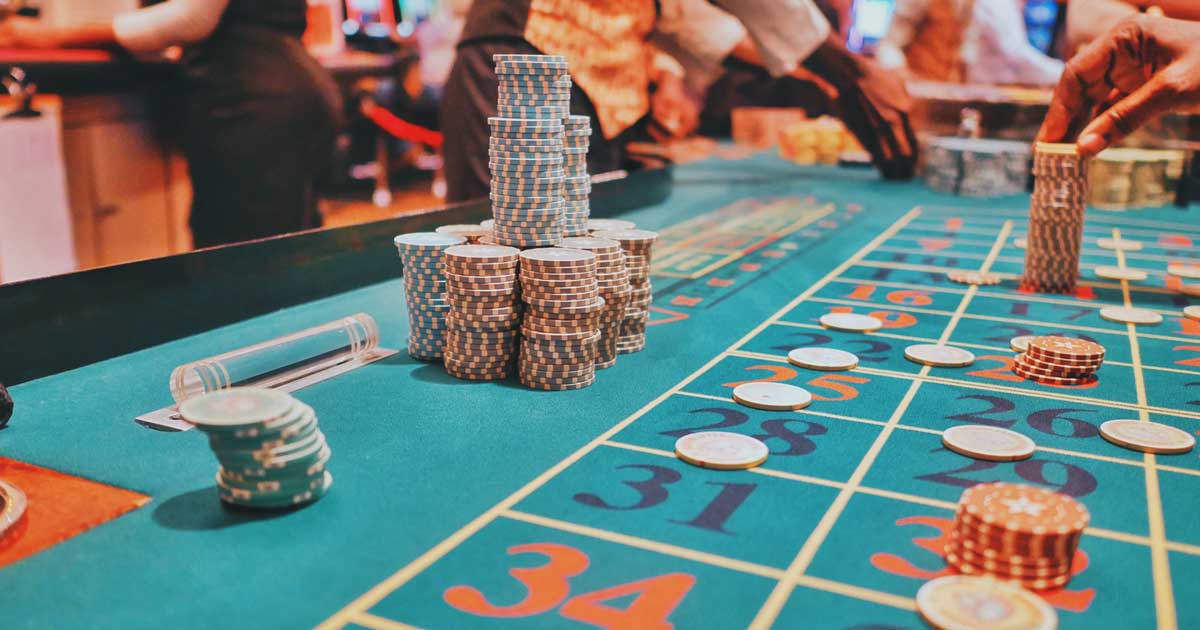
We asked Sam Kljajic, a 20-plus-year worldwide veteran surveillance and security consultant in the gaming industry, six questions about facial recognition technology and what it means for the casino industry:
1. These are unique times, so let’s start there. What do you think casino security teams should be doing given COVID-19 closures?
We are still early in this crisis, and to many this is a new and never-seen-before situation. Casino security teams need to be assessing policies, procedures, and technologies that can help their companies with emergencies like this one. They should assess any weaknesses — for example, if there is a reduction in manpower due to illness or social distancing needs — and look into technologies that can assist.
Casino security teams must also remember that in such times, it could be more likely that an outside threat or even a member of casino staff could try to take advantage of the situation and cause harm. Security needs never go away, even if doors to the public aren’t open. With the obvious reduction of required work during casino closures, if possible and if allowed, this would be the perfect time to repair any and all system faults and issues, test new technologies, and update policies and procedures.
2. That brings us to security technology. Is the casino industry ready for face recognition? How do you see it enhancing casino security?
Absolutely. Facial recognition offers real-time actionable data from live video feeds that we can use to respond to events in real time. The ROI for enforcing responsible gaming is clear and compelling for casinos around the world. In North America, there is a strong focus on loss prevention coupled with a desire to do more without increasing staff. Beyond security use cases, competition among casinos for players remains fierce, and facial recognition technology opens the door to operational benefits that can enhance the player experience and keep them coming back.
Because facial recognition works with a “watchlist,” staff can be immediately alerted if known terrorists, most wanted, or missing persons enter the premises. Like many places where people congregate in large numbers, casinos can be a soft target for violent individuals or criminal actors — money launderers, human traffickers. Casino surveillance directors have a critical and difficult job — to keep eyes on everything going on across a large venue and prevent harm before it happens. Being able to identify known advantage players or criminals with an automated identification system is an incredibly valuable use of the technology, as persons of interest believe they can get lost in a crowded environment, and without tech like facial recognition, they usually can.
3. How can facial recognition help to minimize losses?
Unlike in some countries, American casinos typically don’t have checkpoints that require you to show ID to gain entry. Cheaters and advantage players can easily gain access to casinos and potentially take tens of thousands of dollars or more before the casino realizes what has happened. Only after going back and analyzing transactions in the specific Casino Management System and comparing with surveillance video do organizations discover that a player that was supposed to be banned was able to gain access and exploit a game. They didn’t see him early enough, and it has cost them. Facial recognition can make a big difference in recognizing and alerting staff when known advantage players or cheaters arrive on the premises. It can equally be used to minimize losses from dishonest staff by adding another layer of access control to restricted areas and entry/exit points.
4. Can face recognition help with day-to-day operations?
Operations wise, cost reduction is key. Casinos want to streamline operations, but without increased expenditures. For example, in some jurisdictions it’s possible to reduce security guards at staff entry and exit points by using facial recognition for access control, or as an additional biometric to badges/ID cards, which can be stolen or misplaced. Adding AI to video surveillance systems has the potential to offer many other operational benefits. Object recognition, appear/disappear, loitering, people counting, heat maps, and other business-intelligence information can be extracted from video feeds when cameras are utilized as data-gathering tools. A casino surveillance VMS (video management system) can use these video analytics to alert staff if something out of the ordinary happens on a video feed. This blend of security and operations enhancements delivers a strong ROI for facial recognition systems with AI-powered analytics — and the capabilities of these systems will continue to grow as the technology advances.
Facial recognition can also help with Title 31 and BSA (Bank Secrecy Act) compliance. If someone is trying to launder money in your casino, they’ll probably be smart enough to know that any transactions over $10K will trigger a CTR (currency transaction report) that identifies the player. Seeking to beat the system, it’s possible that this bad actor could try and run multiple smaller transactions through at different games around the casino to spread the load and evade detection. A facial recognition system could be programmed to tag a person of interest’s face without knowing who they actually are as they run money through a variety of different games to a level, and cash out. When this anonymous “person of interest #47” hits the $10K threshold, an alert can be issued to staff. Maybe they do nothing, but maybe they store the profile in case the same person comes back to do it again.
Ensuring best practices for responsible gaming is another area of operations that can be challenging for casinos. Underage or impaired individuals are supposed to be prevented from gaming for health and safety reasons. And casinos need to put in place procedures to ensure that individuals who have opted in to self-exclusion lists or have been placed on exclusion lists by casinos are also prohibited from accessing gaming establishments, cashing checks, or converting chips. Facial recognition makes it possible for casinos to efficiently recognize these individuals and issue alerts before a situation escalates and problems arise. Casinos can be held liable and even fined when they allow excluded individuals to play. The benefits of live, real-time facial recognition for reducing such risks cannot be ignored.
5. Does face recognition help with player loyalty and retention?
Casinos fight for the attention of the same pool of players on a nightly basis. Player ratings, comps, and overall player experience is one of the big ways in which casinos compete for player loyalty. Player ratings can be difficult to update and validate for fairness and accuracy. It’s an easy mistake for a pit boss to put the wrong information in for the wrong player on a busy night. Using AI and facial recognition, it’s possible to link players to the amount of money they are betting. AI can recognize the chips and can do an automatic calculation much better than a human can, and this allows casinos to adjust their services to reward their best players quickly and accurately. Being recognized with impeccable service makes players come back. However, the larger the operation, the more difficult it is for staff to deliver this level of service. Facial recognition ensures that your high rollers or whales are not ignored!
6. How do you think patrons will react based on concerns about privacy and the collection of personal identifying information?
Within gaming environments, regular visitors understand that regulations require video to be recorded and retained so disputes between players and dealers can be adjudicated — the collection of video benefits the gambler. Likewise, if face recognition can identify a known cheat sitting at a poker table, the rest of the players at that table are thrilled to know the game will be more fair when the cheater is identified and removed. In general, people that regularly patronize gaming establishments have the (correct) belief that video surveillance and the collection of PII protects their interest and allows operators to recognize and reward their brand loyalty.
Depending on where you live or play, regulations protecting your personal identifying information can vary widely. The GDPR (General Data Protection Regulation) in Europe is one possible approach, and other countries may adopt similar standards in the future. In the USA, privacy regulations vary by state. Some countries don’t care about it at all. As casinos roll out such technology, it’s important to be aware of the current and future regulations that are being proposed. Because the landscape is subject to change, it’s important to choose a facial recognition system that can be easily modified to comply with the unique requirements of your territory. Not all facial recognition systems emphasize privacy and compliance in their design, so it’s important to choose wisely. Likewise, systems vary widely in their scores for accuracy and inherent bias with regards to race and gender. It’s also very important to ascertain who owns the data and what is done with it — how long the data is retained, etc. The last thing anyone wants is bad press because their data is being sold to third parties or law enforcement without their consent!
For more information about SAFR — or to request a demo or free trial — contact us.
